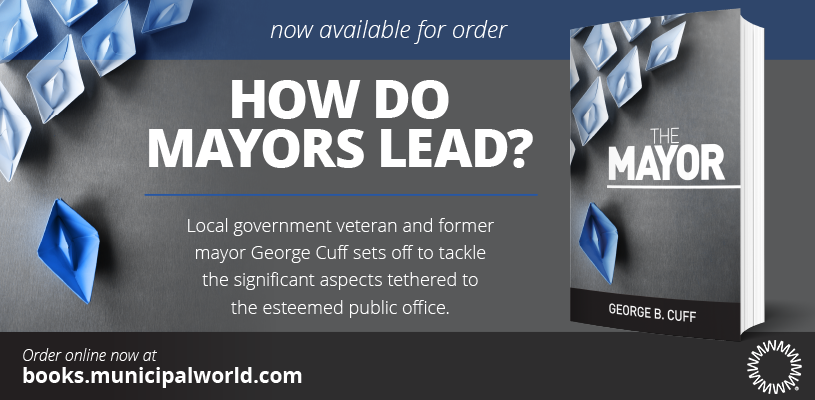City of Guelph hydro merger and acquisition opportunity: A case study in municipal engagement

Challenging topics make great opportunities
More and more, citizen expectations of community engagement continue to increase; residents are demanding to be included in decisions that will impact them. This is especially true in situations that are politically challenging or have a significant impact on the community.
In these cases, the quality of the engagement is key. It’s not enough to pay lip service to consulting and then go ahead with the preferred option – showing the consultation is valued, and citizen concerns being factored into the decision is a great way to build trust and accountability.
The City of Guelph faced a difficult decision about how to proceed with Guelph Hydro, and how they proceeded can help to provide valuable lessons for communication and public engagement. Tara Sprigg from the City of Guelph and Luc Levasseur from National PR presented at the 2018 Municipal Communications Conference in Toronto about the campaign. The lessons learned are a great primer – not just for handling communication of hydro utilities projects, but also for applying to a much broader host of challenging topics.
The Challenge
Guelph Hydro was a service provider that served Guelph and the neighbouring community of Rockwood, with the city as the sole stakeholder. The landscape was such that maintaining the status quo would be problematic from an operating perspective; but, choosing any of the other options on the table (i.e., buying another utility, selling off Guelph Hydro, or merging) would be politically challenging. There was an understanding that there was literally only one chance to make the right decision, and the community was going in without a predetermined option in mind.
Any decision had to be navigated through the course of a series of external challenges. A failed merger attempt a decade earlier (one that was driven by the utility without consultation) left people worried; there was some confusion around the nature of provincial government policies and privatization; and Guelph had a reputation of being a highly-engaged citizen base. Any approach needed to respond to these challenges as well. So, the decision was made to engage early and often.
Engagement Process and Principles
Some of the key goals going into the engagement process were focused around issues of trust and meaningful engagement. Finding out what citizens wanted to see, finding out what the community’s values were on the topic, and maintaining public confidence were crucial to delivering an outcome that the community could live with.
The key was creating a neutral brand that didn’t show any bias toward any of the decisions. The slogan “Energizing Tomorrow” was chosen, and a four phase consultation was developed to not only engage, but also to inform. Phase one was about values: set the priorities, set the values of the community, and see where the community stood. It was a crucial part to framing the discussion and letting the communicators understand what the community really felt. The second phase included the first discussion of the options that were on the table. It immediately became apparent from the consultation that privatization was not in line with the cities values, so the options became somewhat more limited.
Once the engagement with the community had developed a solid foundation for where things stood, the engagement shifted somewhat. It became about moving from a theoretical to an actual deal, and informing the political decision that needed to be made. The emphasis was placed on letting the public know what was on the table, and then informing council as to the specific mood. Once a decision had been made, the final phase began: keeping the public informed about the process.
The entire consultation process was built around a series of principles that shaped the framework and helped lead to a solid decision:
- transparency/accountability;
- clear language and messaging;
- timeliness;
- authenticity;
- inclusivity; and
- ease of participation.
Five Big Lessons
1. Good engagement requires strategic communications
Engagement can’t just be a one way street. People need to feel a part of something. Creating a compelling narrative is crucial, since people are able to understand not only the what, but also the why. Further, tailoring it to the audience will help to improve feedback
Complex engagement also requires hitting as many people as possible – that means working in digital platforms as well as more traditional ones. Digital communications allowed the opportunity to focus on specific areas of the population, while the process ensured that no one was left out.
And, in reality, no decision that can be made will have 100 percent support. So, it means having issues management built into the communications, working to mitigate some of the challenges, and relying on analytics. If there’s a negative comment that only reaches 10 people, it would have a very different impact than a comment reaching thousands.
2. Complex topics have values-based discussions
Consultation was not something that could be done haphazardly. On one hand, Guelph was committed to being fully transparent; on the other, the communications team was careful not to back council into a corner. It mean working carefully to focus on education, to present impartially, and to make sure they had the community’s priorities right. The decision criteria the city decided on were around value: value for the customers, value for the community, and value for the city as stakeholder. The fact that people thought that the priorities were properly aligned was an important point for council.
3. Look beyond the usual engagement tools
It’s important to not only have the right message, but also having the right message at the right time. Use a variety of options to engage: regularly updating a website to ensure that clients have timely information to look on their own time; using paid and organic social media (paid social reached almost 700K people alone on the city’s project); advertising; op eds; bill inserts; open houses; print communications, etc. – if there’s a group that’s being underserved, there has to be a way to reach them.
4. In a politically difficult decision, support council in the decision-making process
In this case, there was a strong source of community pride in the utility. It was considered well functioning and well operated, and there was a strong sense of “why should we change it” that needed to be overcome because of a lack of understanding of the industry as a whole. A narrative was created so people could engage and understand.
On complex topics, you can’t expect council to be experts; a significant amount of time was spent bringing council up to speed in small groups; but, in a way that allowed them to ask questions and get information from the experts.
And, once a decision has been made, support the council. In this case, the mayor became the champion for the cause, and the staff supported the decision and the mayor. Despite a complex issue that was decided less than a year before an election, it didn’t become an election issue. That can be explained, in part, to the process – people felt like they had already had their say, the process was transparent, and the communication had continued.
5. Simplify what’s complex
Just as you can’t expect elected officials to be experts on complex topics, you really can’t expect the general population to be experts either. It means that communications teams need to work with subject matter experts to not only inform, but also simplify issues so that they can be understood by everyone. In the early engagement on this topic, Guelph worked to break a complex issue into much more manageable chunks to ensure ease of engagement. Using a variety of methods to explain a topic is also valuable – the city pointed to the community’s success with infographics, as well as conducting its first ever Facebook Live event.
Making Communication a Priority
Not every community will have to deal with a utility merger; however, every community will have unique, complex issues that impact them. Engaging with the public is something that nearly every local government says is a priority; but, as Guelph shows, how you communicate can make a big difference on the success of a project. MW



